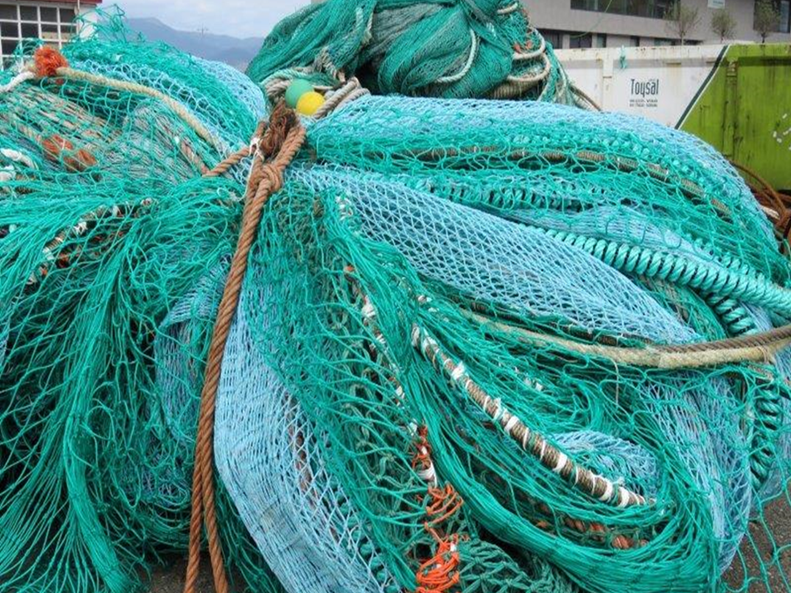
Around 640,000 tons of fishing equipment are lost or abandoned in oceans annually, and they can remain in the oceans for up to 600 years. Lost or discarded fishing gears can have particularly harmful impacts at sea, as they keep fishing and trapping marine life and smother its habitat, as they are a source of pollution for marine waters and a waste of resources. Abandoned fishing gears can also represent a risk for navigation.
OCEANETS project aims at preventing, recovering and recycling abandoned fishing gears, with the objective of demonstrating the feasibility of a circular economy model for managing these complex waste materials. The project activities aimed at:
- involving stakeholders, mainly skippers and captains of fishing fleets, in using the appropriate tools to prevent that fishing gears are lost, and to recover the ones that are found abandoned in the marine environment;
- recycling the recovered fishing gears to produce high quality textiles.
One of the main project’s achievements is the development of an online and updatable ICT tool to register and exchange geolocated information on the potential loss of fishing gears. Thanks to this tool, designed and tested with the support of skippers, captains and ship owners operating in the port of Vigo (Spain), it is possible to alert and signal the presence of lost or abandoned fishing gears and ultimately recover them. It is also possible to identify the hot spots where fishing gears are more easily lost and to prevent their accidental loss.
Another major project’s achievement is the recycling of recovered fishing gears into high quality textiles. OCEANETS demonstrated how cuttings from damaged fishing gears or recovered fishing gears can be used as a source of raw material for the textile industry. OCEANETS optimised a pilot plant to chemically recycle the plastics (polyamide) fishing gears are made of in order to produce high quality yarn. OCEANETS beneficiaries used such yarns to produce quality and fashionable sportswear. Finally, thanks to the development of a specific tracing additive, OCEANETS made it possible to grant the recycling origin of the fabric and help protect against counterfeits.
In April 2021, the project was featured on Euronews Ocean episodes, as an example of how to protect our Oceans: Reducing plastic in fishing and aquaculture: what alternatives to protect our oceans? | Euronews
- Reference
- EASME/EMFF/2017/1.2.1.12/S2/03/SI2.789390
- Project duration
- 1 Jan 2019 - 30 Jun 2021
- Project locations
- Spain
- Overall budget
- €532 575
- EU contribution
- €426 09080% of the overall budget
- Project website
- Coordinator's website
Stakeholders
Coordinators
Asociacion de Investigacion de Materiales Plasticos y Conexas (Spain) (AIMPLAS)
- Website
- https://www.aimplas.net/
Participants
Asociación Vertidos Cero para la Prevención, Minimización y Eliminación de los Vertidos (Spain)
- Website
- https://vertidoscero.com/
Cooperativa de Armadores de Pesca del Puerto de Vigo S.C.G. (Spain) (ARVI)
- Website
- http://www.arvi.org/
ECOALF SL (Spain)
- Website
- https://ecoalf.com/en/
SINTEX AS (Czechia)
- Website
- http://www.sintex.cz/en/
Universidad de Vigo (Spain)
- Website
- https://www.uvigo.gal/
